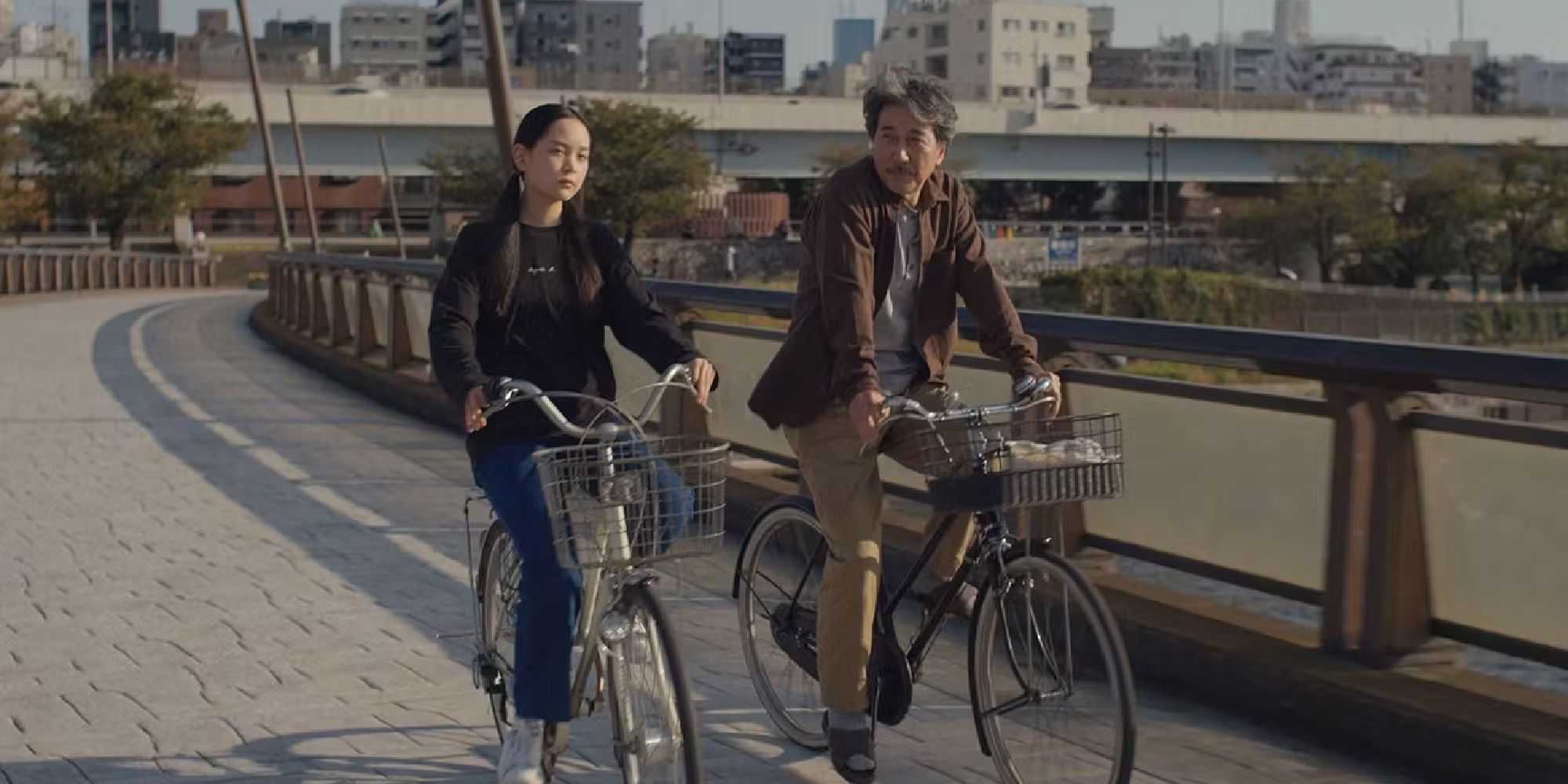The Big Picture
-
Perfect Days
by Wim Wenders captures the beauty of daily routines in a life-affirming, minimalist film. - The movie explores finding contentment in mundane tasks, showing beauty in simplicity and routine.
- The film serves as a reminder to appreciate the ordinary and embrace self-acceptance in a digital age.
2023 will likely go down as one of the most exciting years for cinema of the century. Headlined by the double feature that took culture by storm in Barbie and Oppenheimer, the year featured a plethora of artistic achievements from some of our most beloved filmmakers. Movies and the theatrical experience, if only for a brief period, leaped back into the monoculture for the first time since the pandemic. The selections and snubs by the Academy Awards are a guaranteed source of derision among moviegoers, but in 2023’s Oscar season, all 10 Best Picture nominees were admired to one degree or another. Everyone will have their favorites from this year, but the one that has already slipped through the cracks is Perfect Days, a film about the banality of life that is a life-affirmation expression for today.

Perfect Days
A janitor in Japan drives between jobs listening to rock music.
- Director
- Wim Wenders
- Cast
- Kôji Yakusho
- Runtime
- 123 minutes
- Main Genre
- Drama
How Wim Wenders Connects With All Audiences in ‘Perfect Days’
Perfect Days arrived to the public with much anticipation due to its success at the Cannes Film Festival, as the film’s star, Koji Yakusho, earned the honor of Best Actor for his performance as Hirayama, a quiet and solitary public restroom custodian leading a pedestrian life of cyclical routines in Tokyo. The film’s director, Wim Wenders, the legendary German visionary behind classics such as Paris, Texas and Wings of Desire, is a draw for passionate cinephiles. After years of reserved fanfare throughout the century, Wenders returned with a noteworthy film on his hands. The film, refreshingly devoid of plot, chronicles many days in the life of Hirayama, a man defined by methodical procedure. He repeats his structured, ritualized life every single day, and Wenders takes the audience through the repetitive cycle. Hirayama wakes up, listens to classic rock cassette tapes on his drive to work, cleans toilets, photographs trees during his break, patronizes a local bar after work, and reads a paperback book before falling asleep. Lather, rinse, repeat. It sounds monotonous, and perhaps it is, but Wenders miraculously finds transcendent beauty in Hirayama’s mundane life.
Among mainstream audiences, there is a disinterest in foreign cinema. International films carry a stigma of being inaccessible or inherently too highbrow for Western viewers. For some, the prospect of reading subtitles on a television screen is just too demanding. Viewers skeptical of the influence a foreign film can leave with you must seek out Perfect Days, as its minimalist style and concept touches everyone. The film itself is exemplary of the shattered divide between the text and Western viewers. Wenders, a German filmmaker, beautifully told a story about a Japanese man living in his country of origin and speaking its language. While it does reflect a societal class divide, as Hirayama lives in an ungentrified neighborhood and works in an upscale neighborhood, Perfect Days could exist anywhere in the world, making it a truly evergreen film.
In some form or another, we all share a kinship with Hirayama. Working unglamorous and dead-end jobs is a facet of life. In the character’s case, cleaning the city’s public toilets, as chic as they look onscreen, is perhaps the grimiest line of labor imaginable. Hirayama’s work is so thankless that any time an individual needs to use the restroom, he must drop whatever he’s doing and rush out the door as they take care of business. In these moments, you can sense his anonymity as a human being. Hirayama makes a strenuous effort not to be noticed by anyone around him. Whether this is self-imposed or an order by his employer is unclear, but either way, his lack of agency provides the film with an immediate melancholic streak. It’s only human nature to hope that he breaks out of his solitary and rigid routine.
The Art of Mundane Procedure in ‘Perfect Days’
Most directors would have emphasized the pathos of Hirayama’s lifestyle. On the surface, loneliness combined with a low-wage job is the nadir of civilized living. Wenders, whose previous films specialized in sensual vividness through simple gestures, rejects the emotional plight of mundanity and extracts its untapped beauty. Few storytelling devices are more satisfying than the depiction of procedure, especially for those who excel in a specific field. Deconstructing procedures in films are usually saved for police/journalist investigations or the artistic process. Conventional thinking says that no one needs the curtains revealed for the day-to-day operations of a bathroom custodian. Wenders, who displays a sharp eye for procedural filmmaking, presents scrubbing toilets as a riveting exercise. The stillness and ease which he carries himself with on the job characterize Hirayama as a blue-collar painter of sorts. Where his co-worker, Takashi (Tokio Emoto), is routinely tardy for work and generally in disarray, Hirayama remains unbothered no matter the circumstances. This contrast makes this lowly custodian a respectable demonstration of professionalism.
Perfect Days is a beautiful expression of the every day because Wenders identifies soothing comfort in Hirayama’s recreational life. His methodical approach to eating lunch on a park bench, photographing trees, and patronizing a bar is shown with the same tonality as his morning routine and work procedure–it feels like another day at the office. Because Wenders patiently follows Hirayama through the beats of his unenviable social and economic status, these leisurely moments are gratifying. The poetic sentiment of finding beauty in routine is easy to express on paper, but without a vivid storyteller like Wenders, watching Hirayama continue to be alone inside a bar or bookstore would still feel alienating. Koji Yakusho, with limited dialogue and the most delicate facial gestures, conveys sincere tranquility in these scenes.
‘Perfect Days’ Is a Life-Affirming Film About the Simple Beauties of Life
Like its central character, Perfect Days‘ humility is its calling card. Wenders never breaks from Hirayama’s perspective, which keeps the film grounded and devoid of heavy-handed commentary. Because of Wenders’ poetic approach to capturing mundane beauty, Perfect Days is the life-affirming film for today. Deep down, we are all anxious beings, no matter how rich or socially savvy we may be. From everyday chores to the abstract concerns of our future, people, especially in a world immersed in digital platforms that expose us to everything, are trained to think that they’re not good enough. Rather than expanding our worldview, the information overload of the digital world has made people feel aimless. The pressure emanating from social media triggers apprehension about being alone and mundane.
Hirayama lives in an ostensible time capsule. Instead of adopting digital cameras or Spotify, he deploys his passion for photography and music through the use of 35mm cameras and cassette tapes. His mixtape consists of ’60s and ’70s tunes by Lou Reed (whose song “Perfect Day” gave the film its namesake), Van Morrison, and Patti Smith, and he opts to read the classic novels of William Faulkner and Patricia Highsmith–without an E-Reader in sight. This is not the behavior of a paranoid luddite, but rather, a man comforted by the simplicity and straightforward nature of his archaic mediums. The delicate construction of one’s utopia amid a confusing and often treacherous world is the ideal fantasy for any aimless or dispirited individual. Wim Wenders uses Hirayama as a mirror for the audience to reflect on the profoundness of his ordinary life, even after his estranged sister, Keiko (Yumi Aso), is affronted by his lowly status as a custodian when they meet. This should break Hirayama’s spirit, but at the end of the film, Nina Simone‘s “Feeling Good” plays during his drive to work, and the minimalist beauty of his life washes over him, and the audience as well.Perfect Days gracefully paints a dream world existing in our contemporary universe of how to unlock happiness by being true to ourselves.
Perfect Days is available to rent on Amazon in the U.S.


